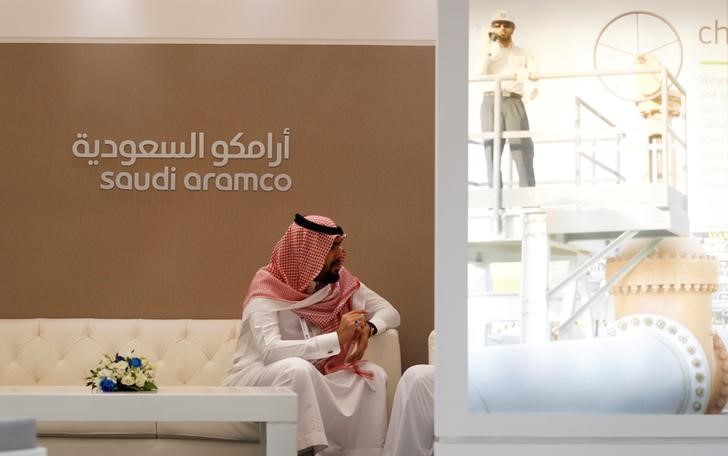Two 59%+ winners, four above 25% in Aug – How this AI model keeps picking winners
(Bloomberg) -- The battle for control of the global oil market intensified again on Wednesday as Saudi Arabia promised to increase production capacity and the United Arab Emirates said it plans to pump as much as possible next month.
Riyadh said it will boost capacity to an unprecedented 13 million barrels a day, doubling down on Tuesday’s pledge of extra output in April. The U.A.E., a close Saudi ally, then promised to push more crude to customers than it can produce. These are fresh shots in an all-out war that has seen prices crash and the outlook for the market darken as nations prepare to pump as much as they can.
The moves come after an alliance between the OPEC cartel -- effectively headed by the Gulf nations -- and Russia collapsed acrimoniously last week. The country, for its part, has announced that it will retaliate by activating additional supplies of its own. Yet Moscow, which has nowhere near the quantities of untapped production held by the Gulf states, has also tempered its message, saying it remains open to resuming cooperation.
Until Friday, Saudi Arabia, U.A.E. and Russia had been part of a global coalition known as OPEC+, which for the past three years had restricted crude output to shore up prices against a relentless tide of American shale oil. Only in July, Russia and Saudi Arabia touted their alliance as a marriage to “eternity”.
Spectacular Collapse
All of that has now spectacularly collapsed.
The deadly coronavirus has played its part. Saudi Arabia had been insisting for weeks that the group needed deeper production cuts to tackle the demand loss caused by the quickly spreading virus. Russia on the other hand resisted as it wanted more evidence of the impact on consumption.
The standoff has drawn in U.S. President Donald Trump, who spoke with Saudi Crown Prince Mohammed bin Salman by phone this week. It followed the Department of Energy denouncing “attempts by state actors to manipulate and shock oil markets.” The department didn’t name Saudi Arabia nor Russia.
The kingdom’s de-facto leader is, however, showing no signs of relenting. The country’s energy ministry, headed by Prince Mohammed’s half-brother, ordered Saudi Aramco (SE:2222) to boost its output capacity by 1 million barrels a day, the first increase in at least a decade.
Saudi Arabia’s plan “isn’t the best option” in the current market, Russian Energy Minister Alexander Novak told reporters in Moscow.
Abu Dhabi National Oil Co. will supply 4 million barrels a day of crude to customers in April, it said on Wednesday. That would mean adding more than 1 million barrels a day to what the U.A.E. pumped in February. The country’s output capacity is 3.5 million barrels a day, according to the International Energy Agency.
Saudi Arabia and its allies are also slashing prices for their oil in an attempt to push out Russian crude and secure market share. Iraq and Kuwait followed Aramco (SE:2222) in cutting rates to customers all over the world.
A Russian response could come as early as Thursday, when the officials from the Energy Ministry will meet oil company executives. They will discuss their output plans and situation in the market, Novak said.
Oil prices resumed their decline on Wednesday, sliding back toward the four-year lows hit on Monday. Brent futures traded near $36 a barrel in London, less than half the level the Saudis need to cover government spending.
